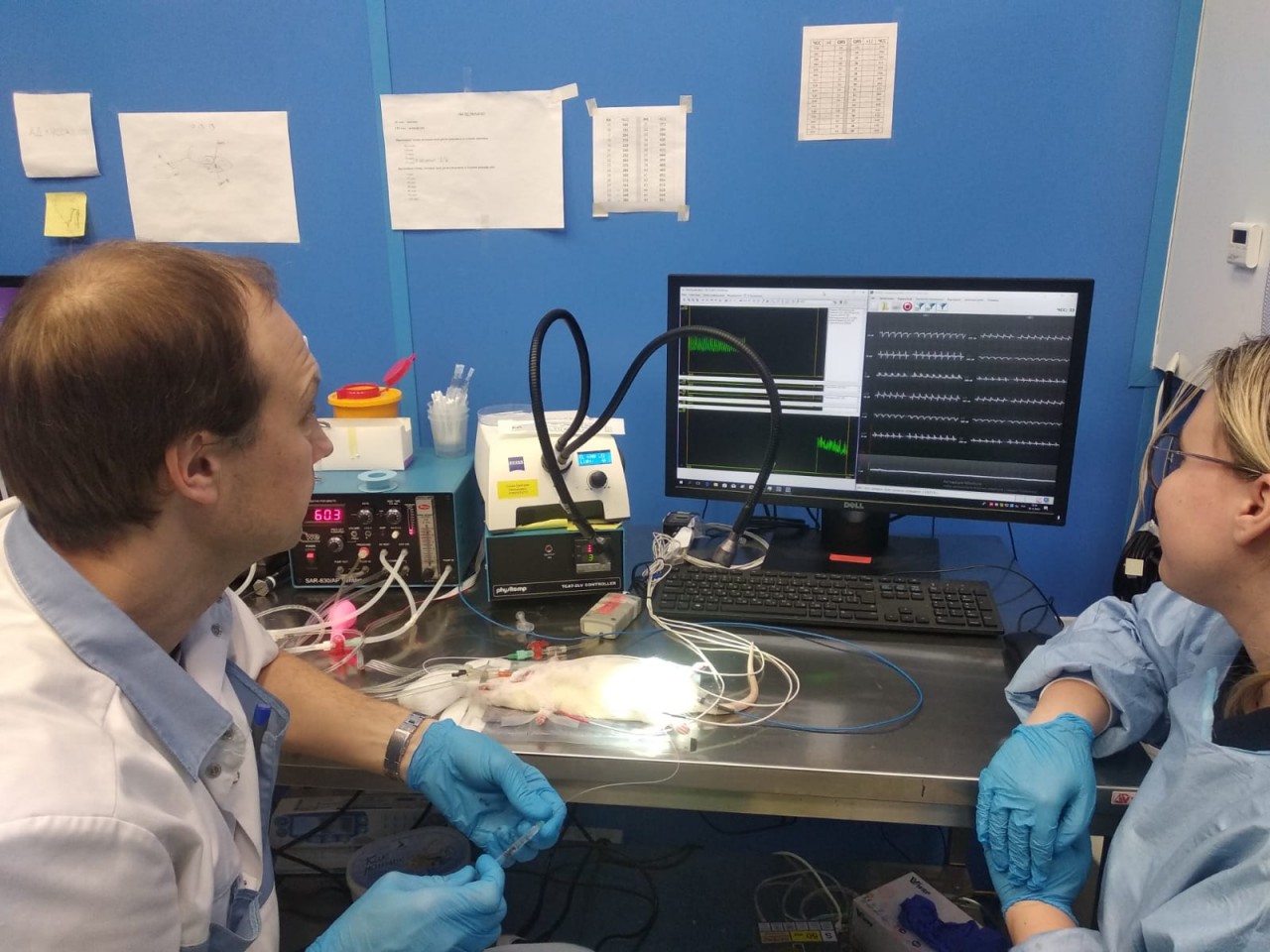The team of researchers at the Institute of Experimental Medicine (IEM) of Almazov Centre, led by Dr. Mikhail Galagudza, Corresponding Member of the Russian Academy of Sciences, has demonstrated a method of reducing the size of the myocardial necrosis zone in an acute experiment on rats in the context of a systemic inflammatory response syndrome (SIRS). This was achieved by administering a mixture of bifido- and lactobacilli in the diet, both therapeutically and prophylactically. The results of the study, which was supported by a grant from the Russian Science Foundation (RSF), were published in the following journals: Microorganisms, Medical Immunology, Bulletin of Experimental Biology and Medicine, Russian Journal of Physiology named after Sechenov and others.

The human genome consists of 22,000 protein-coding genes to facilitate metabolism, while the microbiome is estimated to contribute 150-360 times more unique coding genes than the human genome itself. In this regard, it is postulated that the immunological and metabolic potential of the gut microbiota may directly impact various physiological processes, including the modulation of myocardial resistance to ischaemic reperfusion injury. Researchers posit that symbiotic microorganisms, which form the basis of probiotic preparations, have a significant impact on both normal physiological processes and pathological conditions, especially those of an inflammatory nature.
“Evolutionarily adapted probiotic microbes have a vital interest in maintaining a mutually beneficial relationship with their host. We believe that bacteria protect cardiac cells from toxic damage and the effects of oxygen deprivation by fine-tuning pro- and anti-inflammatory signaling molecules,” explains Mikhail Galagudza, Director of the Institute of Experimental Medicine.
In order to ascertain the cardioprotective capabilities of probiotic microorganisms, an original experimental model of polymorbidity in small rodents has been developed. This model includes primary visceral obesity (PVO), inflammatory colon disease (ICD) and antibiotic-induced dysbiosis (AID). This combination of conditions, prevalent in clinical settings, has been observed in experimental animals to be accompanied by a substantial increase in pro-inflammatory cytokine levels.
A few days before modelling myocardial infarction and AID in the acute experiment and for a further 8 days, different groups of rats with PVO were intragastrically administered different probiotic strains and strain mixtures.
Observations demonstrated that administration of a mixture of Lactobacillus acidophilus and Bifidobacterium animalis, unlike other probiotics, reduced the size of heart muscle damage caused by infarction by 10%. This enhancement in the heart health of the animals was accompanied by a reduction in the levels of pro-inflammatory cytokines and an improvement in the general condition, including the digestive system.
The scientists suggest that the mechanism of cardioprotection is based on the ability of symbiotic microorganisms to synthesize blockers of some pro-inflammatory cytokines, their receptors or to modulate the expression of their genes. The researchers hope that further research into the mechanisms of probiotic cardioprotection will help to develop new therapeutic and preventive approaches in cardiology by selecting strains for new probiotic drugs and functional foods.
